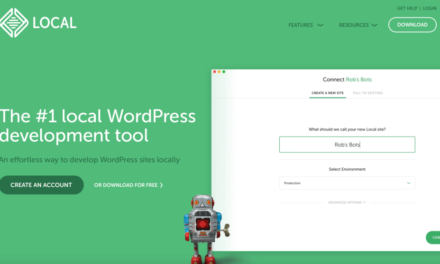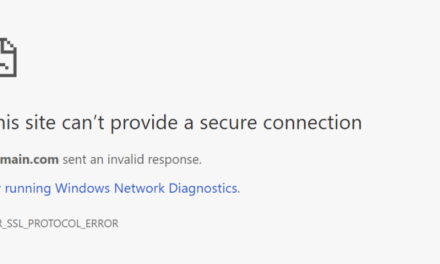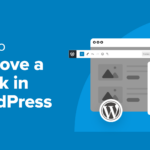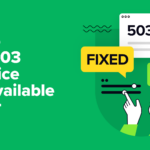A good hosting service is the backbone of any eCommerce business. However, with so many options available, you might not know what would be the right choice for your website.
Managed WordPress hosting and WooCommerce hosting are two popular options to consider. These hosting plans can save you time and money, helping you grow your online business more efficiently.
In this article, we’ll look at managed WordPress and WooCommerce hosting in more detail and compare the two options. We’ll then discuss when to consider using WooCommerce hosting. Let’s get started!
An Introduction to Managed WordPress Hosting
As the name suggested, managed WordPress hosting is a service that’s specifically designed for WordPress sites. When you opt for a managed plan, your web host will handle different maintenance tasks for your site. These typically include:
- Automatic updates and backups
- Security checks and monitoring
- Performance optimization
- Server configuration
A managed WordPress hosting plan can save you time so you can focus on other areas of your business. Additionally, this service typically comes with expert support.
An Introduction to WooCommerce Hosting
WooCommerce is one of the most popular eCommerce plugins for WordPress. It transforms any WordPress website into a fully functional shop:
Since online stores contain large amounts of data, like product information and customer details, they tend to require more server space and better security than other types of sites. As such, a WooCommerce hosting plan can be a good option for your eCommerce website.
Since they’re optimized for online stores, WooCommerce hosting plans can improve a site’s Core Web Vitals, including page speed. They also tend to have advanced security measures to protect your business against fraud and keep customer payment information safe.
Managed WordPress vs WooCommerce Hosting: What Are the Main Differences?
When it comes to choosing between managed WordPress versus WooCommerce hosting, you’ll need to understand the differences and advantages of each option. If you have a WooCommerce store, you’ll want to consider which features and tools are most important to you, and if they’re worth the cost.
It’s important to note that these two hosting services are not mutually exclusive. There are WooCommerce hosting plans that include management services, and there are WordPress plans that are well-optimized for some eCommerce sites.
Let’s take a look at how managed WordPress and WooCommerce hosting plans stack up in different areas.
Security
Managed WordPress plans tend to include security measures to protect your content. However, you can expect a higher level of security from dedicated WooCommerce hosting. This is because eCommerce sites handle sensitive customer data, like credit card details and passwords:
WooCommerce hosting typically offers malware blocking, account fraud prevention, and PCI compliance. These services are not usually included in WordPress plans.
Managed WordPress hosting can address the basic security needs of your website. However, a WooCommerce hosting service is better equipped to handle your eCommerce security needs.
Scalability
Most WooCommerce hosting services are designed around scalability. This is because eCommerce sites have a greater potential to grow rapidly or abruptly.
High-traffic WooCommerce sites with a large catalog of products must be able to expand accordingly. Otherwise, they might experience slow loading times and frequent crashes.
Blogs tend to grow at a more gradual pace than stores. Additionally, they might use fewer resources than online shops. Therefore, managed WordPress hosting doesn’t normally cover scalability.
Meanwhile, WooCommerce hosting plans are designed to help shop owners grow their businesses without any hurdles. They enable you to scale your resources, depending on your needs. For example, if you have a media-heavy product catalog, you might require more storage space on the server.
Features
Managed WordPress plans tend to be more flexible when it comes to site management. Since these services are more generic, they need to be able to address the needs of different types of websites, not just online shops.
On the other hand, WooCommerce hosting providers will be better versed in the needs of eCommerce sites. In addition to more specialized security and scalability options, you can expect more server space, better caching, and powerful server hardware.
These advanced features can help ensure that, no matter how many products you have on your site, your pages will still load quickly and function smoothly. Therefore, WooCommerce hosting can offer a better shopping experience than managed WordPress plans.
When to Choose a WooCommerce Hosting Plan
A WooCommerce hosting plan can help you improve the performance of your eCommerce site. This service typically provides advanced optimization and scalability so that you can grow your online store and keep it running smoothly.
Costs will vary depending on the provider and features offered. However, WooCommerce plans tend to be more expensive than regular hosting. If you run a small eCommerce site or only sell a few products, you probably don’t need to pay extra for a dedicated WooCommerce hosting plan.
For large or growing WooCommerce sites, a specially designed hosting plan can be worth the extra expense. It can help you ensure that your online store performs smoothly at all times.
One of the biggest advantages of WooCommerce hosting is speed. Since eCommerce sites tend to have more images and pages than a standard website, insufficient or poorly optimized servers can cause long loading times.
Therefore, if you have a media-heavy store with a lot of products, you might want to consider purchasing a WooCommerce hosting plan. Additionally, you’ll need the extra server space for your images:
While it may be tempting to opt for a cheaper hosting plan, poor site performance and frequent downtime can end up costing you more. With a WooCommerce hosting plan, you can offer a more reliable shopping experience and potentially make more sales.
Conclusion
Choosing the wrong hosting plan for your online store could lead to slow loading times and poor performance. To ensure that you’re making the most of your investment, it is important to understand the difference between managed WordPress vs WooCommerce hosting.
Managed WordPress can free you from routine maintenance tasks and handle standard website needs. However, if you rely heavily on WooCommerce, you might want to choose a hosting plan that’s optimized for this platform. This can help you protect your customers’ data and scale your website more efficiently.
Do you have any questions about managed WordPress vs WooCommerce hosting? Let us know in the comments section below!











